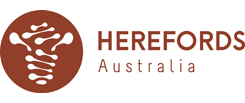Sustainability has grown to become one of the Australian beef industry’s most imperative considerations as more is understood about the impact of sustainable practices across the value chain, and the linkage this holds with building consumer trust and expanding market access.
Launched in 2017, the Australian Beef Sustainability Framework (ABSF) sets out the key indicators of performance in sustainability for industry. It enables success to be recognised through evidence-based metrics and empowers the value chain to continually improve and demonstrate its values to customers, investors and stakeholders.
The ABSF defines sustainability as the production of beef in a manner that is socially, environmentally, and economically responsible – achieved through the care of natural resources, people and the community, the health and welfare of animals, and the drive for continuous improvement.
“There are now a number of global sustainability initiatives demanding our attention, including commitments on global deforestation, an increased focus on carbon emissions, and biodiversity,” MLA Manager – Beef Sustainability and ABSF Sustainability Steering Group Secretariat, Jacob Betros, said.
“It is my belief, if we do not engage with these initiatives and relevant stakeholders, they will engage us when major customers are required to report against the. As we did with foresight in setting a goal of carbon neutrality for industry by 2030 (CN30), we have an opportunity to lead.
“The mechanism is the Australian Beef Sustainability Framework.”
How the ABSF works
The ABSF tracks performance of the industry against a series of indicators under the four themes of Best Animal Care, Economic Resilience, Environmental Stewardship and People and the Community. Within those themes the industry has identified 24 priority issues.
ABSF Annual Update
Each year, the ABSF releases its Annual Update, to track industry performance against each of the indicators associated with the four themes. This document, usually launched mid-year, not only assists in demonstrating the good work being undertaken by industry in sustainable practices, but also to identify opportunities to improve and guide industry priorities and investment. To see the 2022 Annual Update and learn more about the ABSF go to https://www.sustainableaustralianbeef.com.au/
Use of the Framework
The ABSF is used to:
– Advise industry investment for continual improvement in areas most important to customers and stakeholders
– Help protect and grow access to investment and finance by providing evidence of performance and improvement
– Foster constructive relationships with stakeholders to work collaboratively on improvement
– Promote industry transparency and progress to customers and the community.
More recently, the ABSF has examined its alignment with international expressions of sustainability, such as the United Nations’ Sustainable Development Goals, to ensure the performance of the industry in Australia is able to be understood by trade partners, potential markets, and overseas stakeholders.
Governance
The Sustainability Steering Group (SSG) is appointed by the Red Meat Advisory Council (RMAC) to progress the Australian Beef Sustainability Framework (ABSF) on behalf of the beef industry and is made up of representatives from across the value chain.
The current SSG is chaired by Mark Davie, who leads the group to deliver the ABSF Annual Update and further refine data and indicators to improve how the ABSF reports on the sustainability of the Australian beef industry. It also provides advice to RMAC on sustainability matters.
Key stakeholder consultation measures include the biannual Consultative Committees and Industry Forums.








